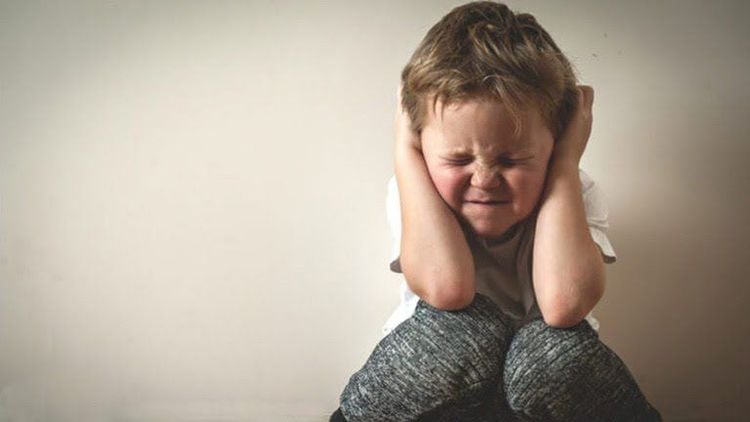This is an automatically translated article.
Many adults think that young children forget quickly, easily adapt and overcome sadness. But the statistics show the opposite, children also know sadness and the number of children with depression and anxiety disorders is not small.
1. What is the cause of depression in children?
Children can also experience depression, with signs that are close to those of adults. However, children with depression are often discovered late because adults assume that children are having physiological changes during development.
Causes of depression in children include:
Physical trauma due to traffic accidents, daily life accidents, natural disasters, wars...; Children who have lost loved ones; The family moved; Divorced parents or aggressive parents in front of the child; Children are rejected, treated harshly, punished for no reason; Parents with mental illness; Children with chronic diseases such as tuberculosis, kidney disease, congenital diseases such as hemolytic anemia... Psychological problems including depression have a great impact on children's quality of life. Children do not study well, do not integrate with friends, children feel stuck, sad, disappointed, desperate...
You should never think that children who are not sad or sad children will go away on their own. The sadness of children can lead to depression and the condition will get worse, even lead to suicide.
One of the reasons why depression in children is often covered up is due to stigma and discrimination around. Many people think that children can't be depressed if they don't have the same serious stressors as adults do.
However, at any given time, about 5% of teenagers are dealing with depression, which is caused by many factors. Some children may be more at risk of depression if they have a pre-existing mental health condition, experienced previous trauma or instability at home.

Đừng bao giờ nghĩ trẻ không buồn hoặc trẻ em buồn sẽ tự hết
2. Signs of depression in children
Expression of temporary grief is normal when a child experiences a stressful or frightening event. But these feelings will usually pass with time, and most children can get through this with the support of family and friends.
Many elements of everyday life are subject to constant change and some children may have difficulty adapting to that change and handling their emotions. This can potentially lead to increased anxiety, feelings of depression, and even suicidal behavior.
Some signs and symptoms of anxiety at different ages are as follows:
Preschoolers: Increased bed-wetting, thumb sucking, difficulty sleeping, fear of the dark, clinging to parents , children change their behavior significantly and drop out of school. Elementary School Students: Children may experience nightmares, difficulty concentrating, irritability, aggressive behavior, clinginess, withdrawal from friends and activities, and truancy. Adolescents: Children this age show changes in appetite or sleep, difficulty concentrating, social withdrawal and unexplained aches and pains, irritability, and increased conflict.
3. How to help children overcome depression?
There are different methods that can be used to treat children with depression and can also be seen as preventive measures when it comes to helping children achieve good mental health.
You need to talk openly with the child: You need to create an environment where the child feels comfortable approaching, this is key to supporting their mental health. Find ways to interact with your child about what he or she is interested in and be willing to talk about so you can step into his or her world. Validate your child's feelings: It's never too early to start talking about painful feelings and normalizing that experience, sharing your child's feelings with others. You can demonstrate this to your child by talking openly with her about your own feelings. Teach children healthy coping skills: Situations that cause stress in children can be very different from those that cause stress for adults. However, both adults and children can use many of the same healthy ways of coping with difficult situations. Breathing exercises to get up, move around, and engage in a favorite activity can be helpful tools for emotional regulation. Reviewing the basics of a child's life: Because depression can affect anything in a child's life, it is important to think about many areas of a child's daily routine. when dealing with depression. For example, what is the child's diet like? Is your child getting enough exercise? Does your child spend a lot of time with electronic screens? Checking in on children's daily routines will help parents create a healthier lifestyle for their children.

Hiện nay số lượng trẻ trầm cảm, rối loạn lo âu không hề ít
In short, children with depression are treatable with the right methods, resources and support. You should seek professional help if your child has significant changes in behavior or if these symptoms persist for more than 2 weeks. Depending on your child's situation, your doctor may prescribe medication, talk therapy, or a combination of both to help your child.
With many years of experience in examining and treating diseases in children, now the Pediatrics Department at Vinmec International General Hospital has become one of the major health care centers, capable of examining , screening and treatment of many specialized diseases in children. Therefore, if a child shows signs of depression, parents can take the child to Vinmec International General Hospital for examination and receive support and advice from specialist doctors.
Please dial HOTLINE for more information or register for an appointment HERE. Download MyVinmec app to make appointments faster and to manage your bookings easily.













